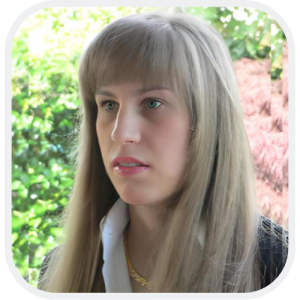
The SARS-CoV-2 pandemic has recently reminded us about the importance of mathematical systems-and-control approaches to contrast infectious diseases. Predictive models are fundamental to understand and forecast the evolution of an epidemic, as well as to plan effective control strategies to curb the spread of the contagion in the population. We discuss compartmental epidemiological models, including the SIDARTHE model, which captures the spread of the contagion and the evolution of the disease considering different severity of illness, the presence of asymptomatic infected and the impact of non-pharmaceutical interventions, and the SIDARTHE-V model that also includes the effect of vaccination in the presence of multiple virus variants. Models are crucial to support policy-makers in the evaluation of different possible scenarios, and model-based approaches are precious to design multi-pronged containment interventions (including physical distancing and use of protective equipment, testing and contact tracing, and vaccination) and to assess the effect of adopted policies, such as vaccination passes. We discuss the importance of pre-emptive interventions and we propose strategies relying on optimal and robust control theory that allow us to deal with deeply uncertain parameter values and to optimally contain the epidemic.
Giulia Giordano is currently an Assistant Professor with the Department of Industrial Engineering, University of Trento, Italy. She received the B.Sc. and M.Sc. degrees summa cum laude in electrical engineering and the Ph.D. degree (Hons.) in systems and control theory from the University of Udine, Italy, in 2010, 2012, and 2016, respectively. She visited the Control and Dynamical Systems Group, California Institute of Technology, Pasadena, CA, USA, in 2012, and the Institute of Systems Theory and Automatic Control, University of Stuttgart, Germany, in 2015. She was a Research Fellow with the LCCC Linnaeus Center and the Department of Automatic Control, Lund University, Sweden, from 2016 to 2017, and an Assistant Professor with the Delft Center for Systems and Control, Delft University of Technology, The Netherlands, from 2017 to 2019. She has been an Associate Editor for the IEEE Control Systems Letters since 2020 and for Automatica since 2022. She was recognised with the Outstanding Reviewer Letter from the IEEE Transactions on Automatic Control in 2016 and from the Annals of Internal Medicine in 2020, and chosen as Outstanding Associate Editor of the IEEE Control Systems Letters for the year 2021. She received the EECI Ph.D. Award 2016 from the European Embedded Control Institute for her thesis “Structural Analysis and Control of Dynamical Networks”, the NAHS Best Paper Prize 2017, as the coauthor of the article “A Switched System Approach to Dynamic Race Modelling”, Nonlinear Analysis: Hybrid Systems, 2016, and the SIAM Activity Group on Control and Systems Theory Prize 2021, for “significant contributions to the development of innovative methodologies for the structural analysis of networked control systems and their applications to biological networks”. Her main research interests include the analysis and the control of dynamical networks, with applications especially to biology and epidemiology.

Though wave energy systems are not yet commercial, control has been identified as an important enabling technology which can reduce the cost of wave energy, allowing it to compete economically with other renewable and conventional energy sources. However, wave energy systems, which are diverse in form and operating principle, represent a challenging control problem, in terms of panchromatic reciprocating energy flux, hydrodynamic modelling complexity, non-causality in the fundamental control solution, and adverse sensitivity properties. In addition, the wave energy control problem is expressed in terms of an energy maximising performance function, rather than being easily reduced to a set-point following problem, while a key system input variable, the wave excitation force, is unmeasurable. This talk will detail the major control issues faced in dealing with wave energy systems, also providing an overview of wave energy technology and some typical devices, while showing some possibilities in the solution domain. Some experimental control results will also be presented and the talk will conclude with some perspectives on future research directions.
John Ringwood received the HonsDipEE from TU Dublin, the BSc(Eng) in electrical engineering from Trinity College Dublin (both in 1981), and the PhD in control systems from Strathclyde University (1984). He subsequently received an MA in music technology from Maynooth University in 2005. He spent 15 years in Dublin City University as a member of academic staff in the School of Electronic Engineering, with concurrent terms as a visiting academic in Massey University and the University of Auckland. He joined Maynooth University in 2000, as chair professor and founding head of the Dept. of Electronic Engineering and built the Dept. from a greenfield site, also serving as Dean of Engineering from 2001 to 2006. He is currently Professor of Electronic Engineering and Director of the Centre for Ocean Energy Research in Maynooth University. He is Associate Editor for IEEE Trans. on Sustainable Energy and the Journal of Ocean Engineering and Marine Energy, and Deputy Subject Editor for IET RPG. John received the 2016 IEEE Control Systems Magazine Outstanding Paper Award and was awarded Chevalier des Palmes Academiques by the French Government in 2017 for his contribution to ocean energy research. In addition to over 400 peer-reviewed publications, he is co-author of the book Hydrodynamic Control of Wave Energy Devices (with Umesh Korde) and holds 3 patents. His commercialization activities, which include the spin-out company Wave Venture, has been recognized by Enterprise Ireland (2008 Industrial Technologies Commercialization Award) and Maynooth University (2013 Commercialisation Award). His research interests are in control systems, ocean and renewable energy, and biomedical engineering.

When robots are to be deployed over long time scales, optimality should take a backseat to “survivability”, i.e., it is more important that the robots do not break or completely deplete their energy sources than that they perform certain tasks as effectively as possible. For example, in the context of multi-agent robotics, we have a fairly good understanding of how to design coordinated control strategies for making teams of mobile robots achieve geometric objectives, such as assembling shapes or covering areas. But, what happens when these geometric objectives no longer matter all that much? In this talk, we consider this question of long duration autonomy for teams of robots that are deployed in an environment over a sustained period of time and that can be recruited to perform a number of different tasks in a distributed, safe, and provably correct manner. This development will involve the composition of multiple barrier certificates for encoding tasks and safety constraints through the development of non-smooth barrier functions, as well as a detour into ecology as a way of understanding how persistent environmental monitoring can be achieved by studying animals with low-energy life-styles, such as the three-toed sloth.
Dr. Magnus Egerstedt is the Dean of Engineering and a Professor in the Department of Electrical Engineering and Computer Science at the University of California, Irvine. Prior to joining UCI, Egerstedt was on the faculty at the Georgia Institute of Technology. He received the M.S. degree in Engineering Physics and the Ph.D. degree in Applied Mathematics from the Royal Institute of Technology, Stockholm, Sweden, the B.A. degree in Philosophy from Stockholm University, and was a Postdoctoral Scholar at Harvard University. Dr. Egerstedt conducts research in the areas of control theory and robotics, with particular focus on control and coordination of multi-robot systems. Magnus Egerstedt is the President-elect of the IEEE Control Systems Society, a Fellow of IEEE and IFAC, and a member of the Royal Swedish Academy of Engineering Science. He has received a number of teaching and research awards, including the Ragazzini Award, the O. Hugo Schuck Best Paper Award, the Outstanding Doctoral Advisor Award and the HKN Outstanding Teacher Award from Georgia Tech, and the Alumni of the Year Award from the Royal Institute of Technology.

The starting point of this presentation is the stability study of linear dynamic systems by means of Lyapunov’s theory, which refers to conditions in the form of linear matrix inequalities (LMIs). Originally treated by linear equations, this problem can also (since the mid-1970’s) be described in terms of LMIs. Numerical solutions for LMIs emerged from then on, initially by implementations of convex optimization methods (ellipsoid, cutting-planes, etc.), and then by solvers specialized in semi-definite programming. At some point, it seems, the phrase was coined: a problem is solved if it is expressed as a set of LMIs. Necessary and sufficient conditions for stability, state or full order dynamic controller feedback stabilization, optimal control or full order filter design with H2 and H∞ criteria, for continuous or discrete-time systems, are expressed as convex optimization problems in the form of LMIs associated with a quadratic Lyapunov function v(x) = x’Px. With uncertain parameters in the system, varying or invariant in time, represented by a polytopic model, only sufficient results are obtained with this class of Lyapunov functions. In most problems of analysis, however, the use of more complex Lyapunov functions associated with relaxation techniques that provide more precise LMIs allows to (asymptotically) reach necessity. But, even for state feedback, full order controller or filter design, only sufficient conditions exist in the case of uncertain systems. Structural constraints, reduced order controller or filter design, presence of non-linear terms, only sharpen the difficulties of synthesis problems.
Pedro Luis Dias Peres was born in Sorocaba, SP, Brazil, 1960. He completed the B.Eng. degree (1982) and the M.Sc. degree (1985) in electrical engineering, both at the Univer- sity of Campinas, Campinas, Brazil. He obtained a Ph.D. degree in Automatique from Université de Toulouse III (Paul Sabatier), LAAS-CNRS, France (1989). In 1992 he joined as a professor at the School of Electrical and Computer Engineering, University of Campinas (UNICAMP). His interests include Signals, Circuits and Linear Systems, Un- certain Systems, Stability, Robust Control, Robust Filtering and Semidefinite Program- ming.

These days drone and UAV research in robotics is dominated by data-driven approaches that are mainly focused on scientific problems related to perception and other AI-related problems. The design, modeling, and control problems, which have been the backbone of drone and UAV research in robotics in the past decades seem to suffer a period of decline in terms of popularity. There are many possible explanations for this phenomenon. Perhaps there are no more relevant open control problems for UAVs; or maybe still unsolved problems are now perceived as solved because of some sort of ‘mass hallucination’; or perhaps the attention is now distracted by other problems which have been neglected in the past because too hard to solve and now seem/are finally within reach thanks to the new AI wave; or another explanation could be that the problems still open in control are so difficult that everybody pretend to ignore them, like the ‘Fox and the Grapes’. Or the motivation could be a different one of course. Or perhaps there is no decline in popularity at all and this research field is actually in very good shape but just not advertised enough to emerge. In this talk I will give my historical and technical point of view on the question whether there are still significant open scientific problems in robotic drones and UAV research on the design and control side and, in case the answer is yes, I will try to critically rank such open problems in terms of difficulty and provide possible technical directions to explore the paths toward their solutions.
Antonio Franchi is a Full Professor in Aerial Robotics Control at the University of Twente, The Netherlands, in the Robotics and Mechatronics department, and an associated researcher at LAAS-CNRS (RIS team), Toulouse, France. He is a IEEE Senior Member. From 2014 to 2019 he was a Permanent Researcher at CNRS and the leader of the aerial robotics activities at LAAS-CNRS. From 2010 to 2013 he was a Research Scientist and then a Senior Research Scientist at the Max Planck Institute for Biological Cybernetics in Germany, and the scientific leader of the group “Autonomous Robotics and Human Machine Systems”. He received the Laurea (M.Sc.) degree (summa cum laude) in Electronic Engineering and the Ph.D. degree in System Engineering (Feb. 2010) from Sapienza University of Rome, Italy. In 2009 he was a visiting student at the University of California at Santa Barbara. His main research interests lie in the robotics area, with a special regard to control and estimation problems and applications ranging across motion and physical interaction control, decentralized control/estimation/coordination, haptics, and hardware/software architectures. His main areas of expertise are aerial robotics and multiple-robot systems. He published more than 150 papers in international journals, books, and conferences and gave more than 90 invited talks in international venues since 2010. In 2010 he was awarded with the ‘’IEEE RAS ICYA Best Paper Award’’ for one of his works on Multi-robot Exploration. In 2018 he was a recipient of the 2018 IEEE RAS Most Active Technical Committee Award. He was Associate Editor of the IEEE Transactions on Robotics from 2016 until 2021 and he is Senior Editor for IEEE ICRA since 2020. He has been associate editor of the IEEE Robotics & Autom. Mag. (2013 to 2016), IEEE ICRA (2014 to 2019), IEEE/RSJ IROS (2014 to 2017) and the IEEE Aerospace and Electric Systems Magazine (2015). He is the project coordinator of JCJC ANR MuRoPhen, co-coordinator of the FlyCrane project, and a was a contributor to PRO-ACT H2020, all focused on multi-robot coordination/manipulation. He is the local coordinator of the EU H2020 Aerial-CORE project, he has been local coordinator in the EU H2020 AEROARMS project, the creator of the ANR PRC ‘The Flying Co-worker’ project, and he contributed to the EU FP7 ARCAS project, all focused on aerial robotic manipulation. He is the co-founder and co-chair of the IEEE RAS Technical Committee on Multiple Robot Systems, http://multirobotsystems.org/ (>450 members). He co-funded and was the program co-chair of the IEEE-sponsored International Symposium on Multi-robot and Multi-agent Systems (MRS 2017, 2019, and 2021). He co-organized the IEEE-RAS-sponsored 2019 and 2016 Summer Schools on Multiple Robot Systems at NUS, Singapore and CTU, Prague, and more than 15 workshops on Multi-robot Systems, Aerial Robots and Teleoperation at IEEE ICRA, IEEE/RSJ IROS, and RSS, among others. Since 2010, he has been the mentor of 12 graduated PhD student and he is currently mentoring 9 PhD candidates. One the PhD theses he mentored won the Best Robotics Thesis French National Award in 2019.

